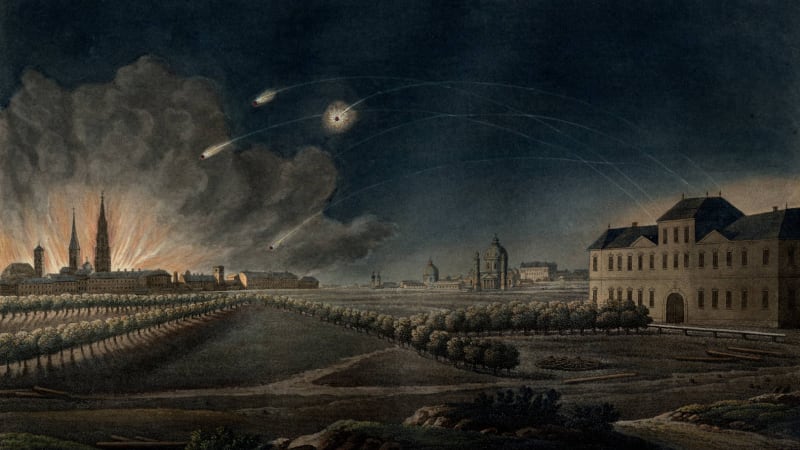Beethoven’s Razumovsky Quartets
April 3, 2018
By 1803, Beethoven had come into his own. After more than 10 years in Vienna, he was no longer the new guy in the city’s musical circles. He had established himself as a virtuoso pianist, written landmark compositions in all the major instrumental genres, and had relationships with many of the city’s most generous aristocratic patrons. While he was dealing with hearing loss (and was increasingly struggling to keep it a secret), he had somewhat made peace with it. Beethoven was never exactly a happy, well-adjusted person, but by the early 1800s, things were going pretty well for him and he could start taking more risks in his compositions.
In 1803 the Habsburg Empire and France were in a lull between wars and Beethoven was thinking of moving to Paris. He wrote the Eroica Symphony as a tribute to Napoleon Bonaparte, and then famously scratched out the dedication when Napoleon was declared Emperor of France. The interwar period turned out to be short-lived anyway, and Austria was soon fighting France again. The French Army occupied Vienna in 1805 and 1809, and the losses the Habsburgs suffered caused increasing inflation and the end of the 1,000-year-old Holy Roman Empire. Incessant war with very few breaks weakened the Austrian Empire significantly until the Congress of Vienna in 1814. For Beethoven, however, while the wars were very disruptive, the constant military activity meant his style of brash, dramatic, unapologetically masculine music fit well with the public mood.
“Beethoven was to live in Vienna for just over 34 years until his death. For the first half of that time, roughly, Vienna was a city at almost permanent war…. Beethoven absorbed the drama, the tension, the danger, and it all left its mark on his music.”
John Suchet, Beethoven: The Man Revealed

The string quartet was one of the most storied genres in Classical Vienna. Haydn had popularized quartets and set a very high standard for quartet writing, and Mozart dedicated six of his most creative quartets to Haydn. Beethoven waited to compose his first set of quartets, Op. 18, until he was nearly 30 because he knew they would be compared to the masterpieces of Haydn and Mozart. Less than a decade later, by the time of his second set, Op. 59 in 1806, his quartets would only be compared to his own previous works. He had started writing longer, more challenging music with the Eroica Symphony, and the Op. 59 Quartets would be in a similar style. They weren’t explicitly about heroism, but they do, in an abstract way, tell a story about individual challenge and triumph.
“It is unanswerable to what degree the sense of humanistic individualism in his mature music, in the heroic style and otherwise, was a conscious matter or simply Beethoven being Beethoven, an individual to the point of solipsism. That was who he was, and his music came out of who he was.”
Jan Swafford, Beethoven: Anguish and Triumph
The Op. 59 Quartets were commissioned by Prince Razumovsky, the fun-loving Russian ambassador to Vienna, who was nothing like Napoleon. Beethoven incorporated Russian melodies into the first two quartets to please the prince. They were written for a new professional string quartet, led by violinist Ignaz Schuppanzigh, that was technically more skilled and musically more cohesive than any previous quartet. Most importantly, they came as Beethoven was increasingly accepting his hearing loss and even writing about it in his music.
The Second Razumovsky Quartet begins with the searching, frustrating E-F half step. In E minor, the quartet starts with two definitive chords before a mysterious short passage is heard twice: once beginning on E and then a half-step higher on F. This uncertain opening builds to a big finish.
Beethoven’s middle period was, like all of his life, a time of intense highs and lows. There was an especially striking contrast between his impressive professional success and his rapidly deteriorating health. Though it was a roller coaster ride, it was probably his happiest period, since he was fully out of the shadow of Haydn and Mozart and earning significant money and respect for his compositions. He successfully channelled his struggles and tribulations into his music, whether it was health problems or the trials of war. He was responding to very specific circumstances in his own life but he also knew he was writing for history. As confident as he was in himself, even he couldn’t have imagined how famous and influential he would become.
Article by Laura Keller, Editorial Manager.





